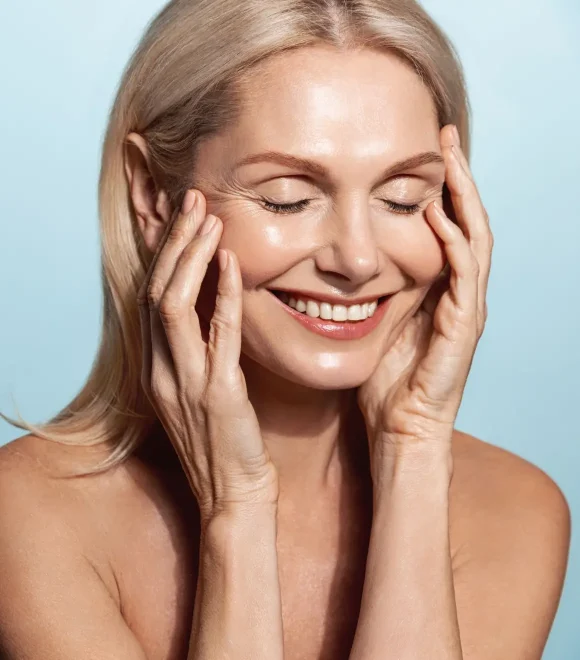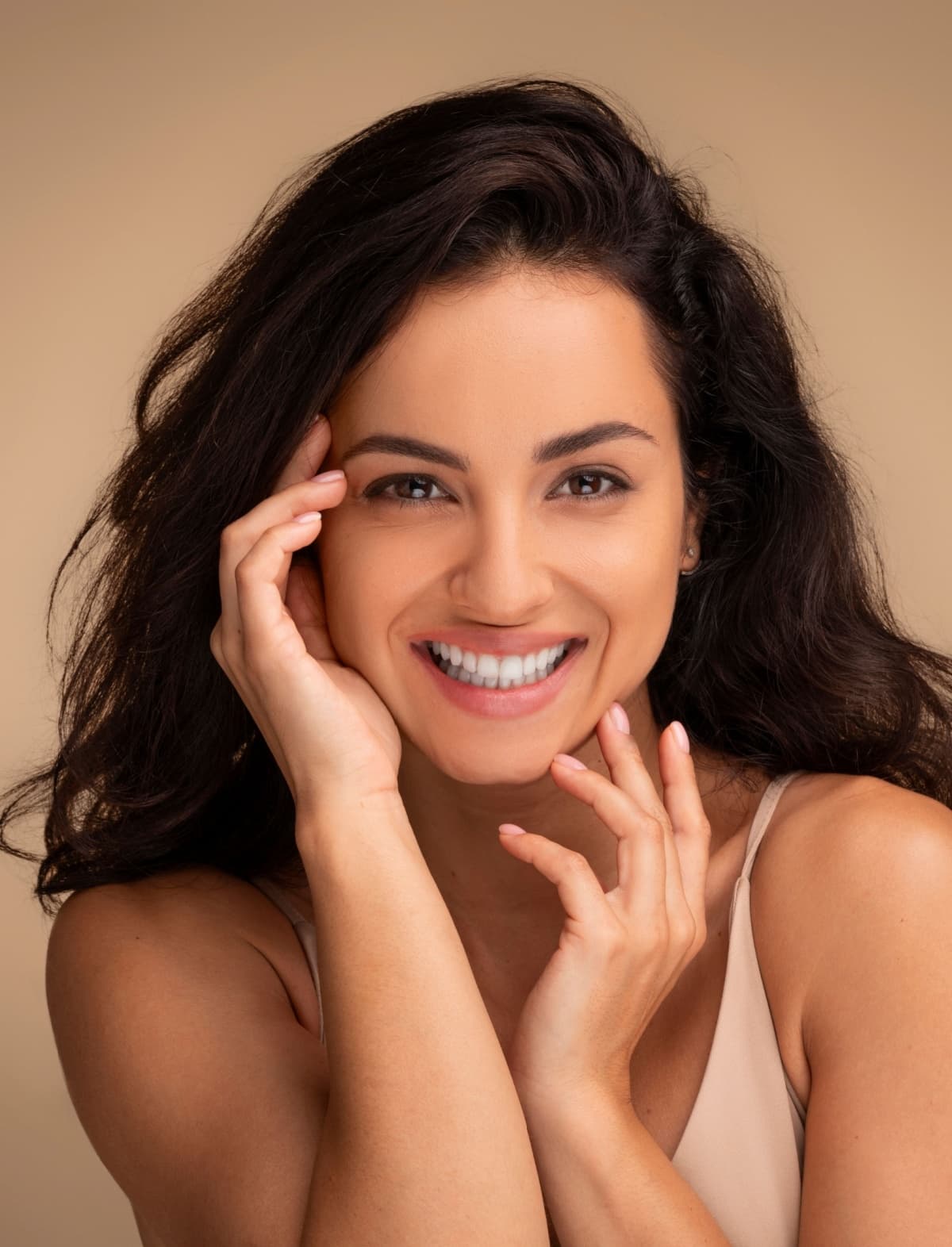

Louis P. Bucky, MD, FACS
Award-Winning, World-Renowned Plastic Surgeon
Premiere Destination for Finest Injectables & Skin Care
A Guide to Laser Treatments
With the number of laser treatments available today, choosing the most beneficial option for your unique skin type and aesthetic concerns can be a daunting task. In fact, simply trying to determine if laser therapy is right for you can often be overwhelming. To help make your research process a bit easier, board-certified plastic surgeon Louis P. Bucky, MD and our team have created this guide to lasers that explains which techniques are best for particular skin issues, as well as what can generally be expected during and after treatment. All of the frequently asked questions listed below have been answered by Renee Christoph—one of our experienced aestheticians—and we hope you find the information to be of assistance in your endevour to learn more about laser treatments.
- How do I know if laser treatment is right for me?
- Will my skin type affect the results of my laser treatment?
- Which laser treatments are best for lines, wrinkles, and crepiness?
- Can acne be treated with lasers?
- Which laser procedures are ideal for redness, Rosacea, and/or other irregular skin complexions?
- Which laser techniques can help minimize age spots, sun spots, and/or other uneven pigmentation?
- Can the appearance of acne scars and other types of scarring be diminished with laser treatment?
- Should I consider laser treatment as a preventative approach to skin aging as opposed to simply a corrective technique?
- How long do results last?
- Are there any anti-aging techniques that work similarly to lasers but aren’t actually laser treatments?
How do I know if laser treatment is right for me?
In general, laser treatment can be an excellent cosmetic option for virtually anyone interested in improving their skin. There are numerous laser techniques designed to address a wide variety of aesthetic concerns, often through the stimulation of new collagen growth within the skin. Lasers can be great for targeting lines and wrinkles, skin crepiness, large pores, discolorations, texture irregularities, acne scarring, stretch marks, and even some degree of skin sagging. To put it concisely, there is basically a laser treatment for everyone—the best thing to do is to come into our practice for a consultation to find out which technique would be most beneficial for your unique needs and goals.
Will my skin type affect the results of my laser treatment?
Yes, certain skin types will react differently to specific lasers, ultimately playing a role in how long it may take to achieve optimal results. Depending on what issues are being addressed, some skin types require more treatments while others respond much quicker with fewer sessions. In the end, a laser plan can be customized to match your specific skin type.

Which laser treatments are best for lines, wrinkles, and crepiness?
Laser resurfacing is going to be the most effective treatment for stimulating and remodeling collagen, which helps to improve lines, wrinkles, and the texture of the skin. At our practice, we offer a range of procedures with the revolutionary Sciton laser, which utilizes customizable BroadBand Light (BBL)™ technology. Forever Young BBL is one such laser treatment that is particularly beneficial because it can actually repair the genes that cause visible aging, as well as refine skin texture. BBL treatments also work to trigger new collagen growth by encouraging the skin’s natural healing response, which ultimately improves the appearance of wrinkles, texture irregularities, and crepiness. Sciton laser treatments offer significant and truly impactful anti-aging results with improved comfort and efficiency.
Can acne be treated with lasers?
Yes, we can treat acne with Forever Clear Acne BBL. Before this technology, active acne could not be treated with lasers; however, the innovative Forever Clear Acne BBL treatment works to eliminate acne-causing bacteria. Once the acne is controlled, resurfacing laser procedures can be used to correct hyperpigmentation and reduce the appearance of any scarring left behind by blemishes.
Which laser procedures are ideal for redness, Rosacea, and/or other irregular skin complexions?
The best laser treatment for irregular skin complexions is generally BroadBand Light (BBL)™ therapy. This technique can help to minimize redness, broken capillaries, Rosacea, sun spots, hyperpigmentation, working to correct any red or brown discoloration. Forever Young BBL and Contour TRL are two procedures that can be beneficial to stimulate the skin’s natural healing process and rejuvenate skin to gradually diminish uneven skin tones. Contour TRL is a Sciton laser method that provides ablative skin resurfacing that is fully customizable to address a range of discoloration, hyperpigmentation, or scarring. The end result is a more balanced skin complexion and revitalized overall appearance.
Which laser techniques can help minimize age spots, sun spots, and/or other uneven pigmentation?
Similar to redness and other complexion irregularities, the most effective solution for uneven pigmentation is BroadBand Light (BBL)™ therapy. With the Sciton BBL system, there are different parameters and handpieces that can be employed based on the depth needed to treat red and brown spots, it’s just a matter of adjusting treatment specifications to target the particular pigmentation the patient wishes to address.


Can the appearance of acne scars and other types of scarring be diminished with laser treatment?
The appearance of scarring can definitely be improved with laser treatments. There are several laser techniques that can treat scars, including Halo and Contour TRL. Each of these lasers uses different levels of BroadBand Light (BBL)™ technology to improve texture and discoloration. Our laser treatment specialists can work with you to create a personalized treatment plan that utilizes specific laser treatments that will be the most beneficial to treat your specific skin type and scarring concerns.
Should I consider laser treatment as a preventative approach to skin aging as opposed to simply a corrective technique?
Absolutely. For someone who is serious about anti-aging and really wants to be proactive about skin care, lasers can definitely be used preventatively. Our range of laser treatments with exclusive Sciton BroadBand Light (BBL)™ technology is fully customizable, and can be used at a lower intensity for preventative purposes. A Photo Facial BBL or Halo treatment, for example, can increase collagen production to maintain a youthful appearance while brightening skin tone and correcting any discoloration. In addition, a lot of people will use Retin-A skin care cream in conjunction with laser treatment, which further helps to slow the aging process.
How long do results last?
For anything related to skin care—lasers included—the effects are cumulative. No laser can achieve ideal results after a single session. Typically, patients will require a series of anywhere from three to six treatments spaced about one month apart to achieve optimal results. Additionally, once the initial series is completed, we often recommend one treatment per year for maintenance purposes, though everyone ages differently and may need “touch-up” sessions more or less frequently.
Are there any anti-aging techniques that work similarly to lasers but aren’t actually laser treatments?
Intensif micro-needling is really gaining a lot of momentum in the anti-aging sector of aesthetic skin care. Similar to laser resurfacing, it creates micro-injuries to encourage new collagen growth in the skin. Using a combination of micro-needling and radiofrequency energy, this advanced procedure effectively stimulates the body’s healing and repair systems to improve wrinkles, hyperpigmentation, acne scars, stretch marks, and various other concerns.

Contact Our Office
If you have additional questions about laser treatments, or if you would like to schedule a consultation at our practice to discover which procedure(s) may be right for you, please feel free to contact us today.
Dr. Bucky has either authored or reviewed and approved this content.
Page Updated:










